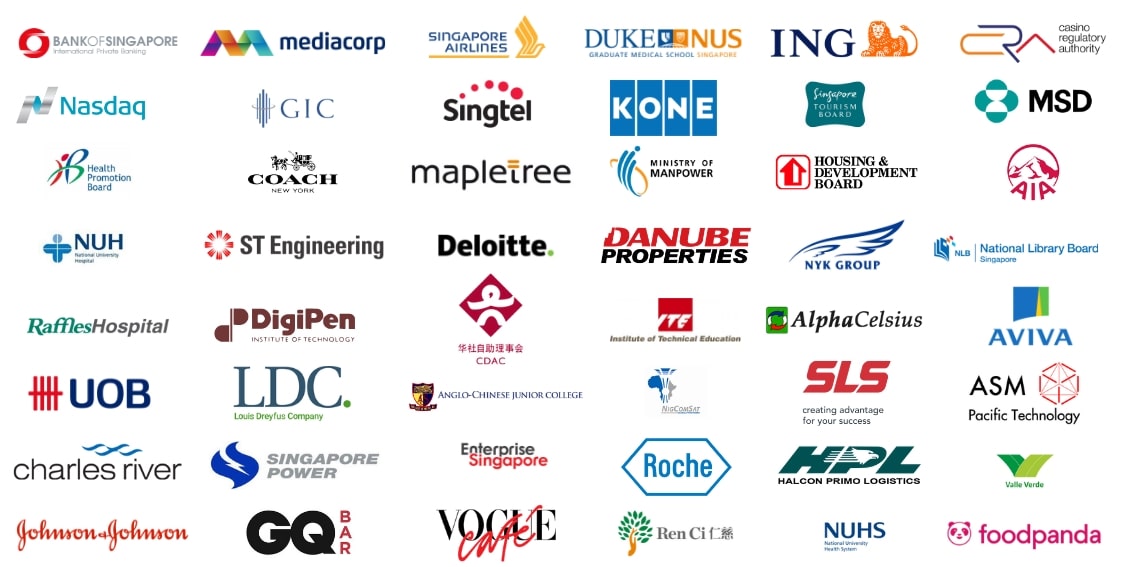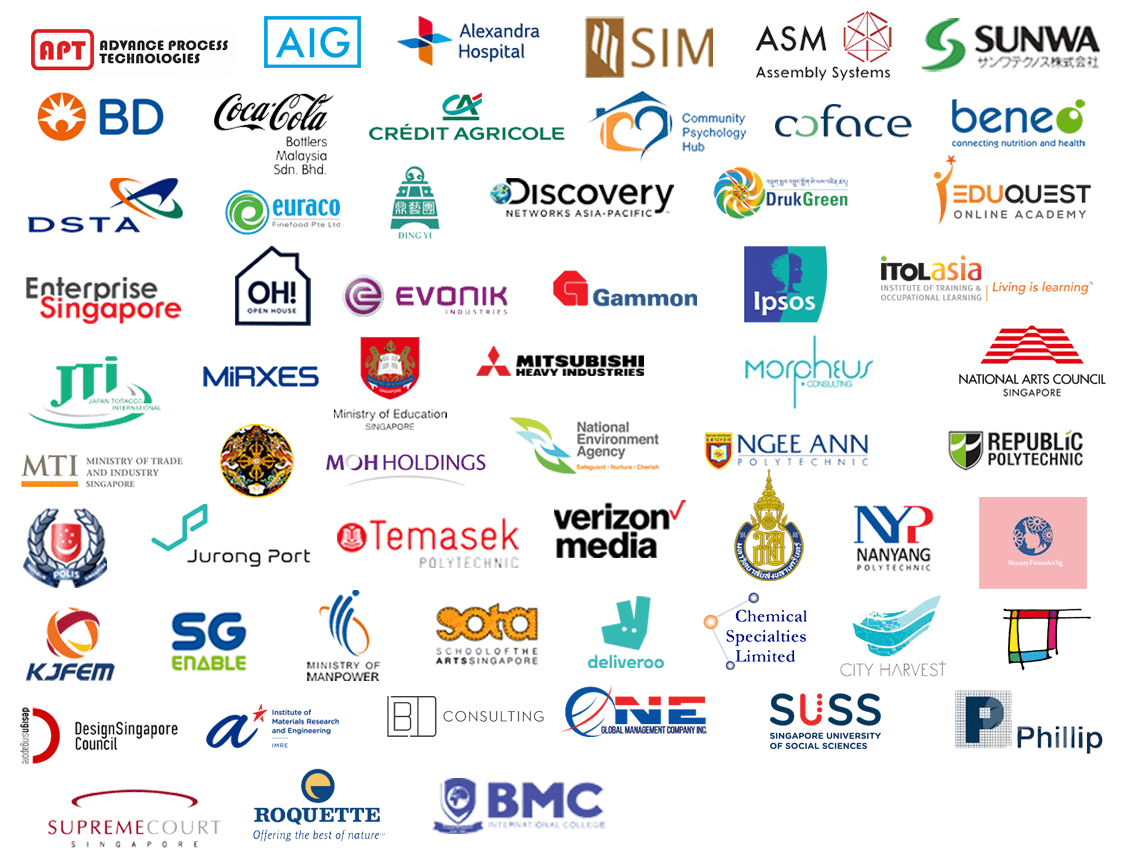Understanding Unconscious Biasness Training Course in Pakistan
Our corporate training course is also available in Karachi, Lahore, Faisalabad, Rawalpindi, Gujranwala, Peshawar, Multan, Hyderabad, Islamabad, Quetta, Sargodha, Bahawalpur, Sialkot, Sukkur, Larkana, Sheikhupura, Mirpur Khas, Rahim Yar Khan, Gujrat, Jhang, Mardan, Kasur, Dera Ghazi Khan, Nawabshah, Sahiwal, Mingora, Okara, Burewala, Jacobabad, Muzaffargarh, Murree, Hunza Valley, Swat Valley, Gilgit, Skardu, and Abbottabad.
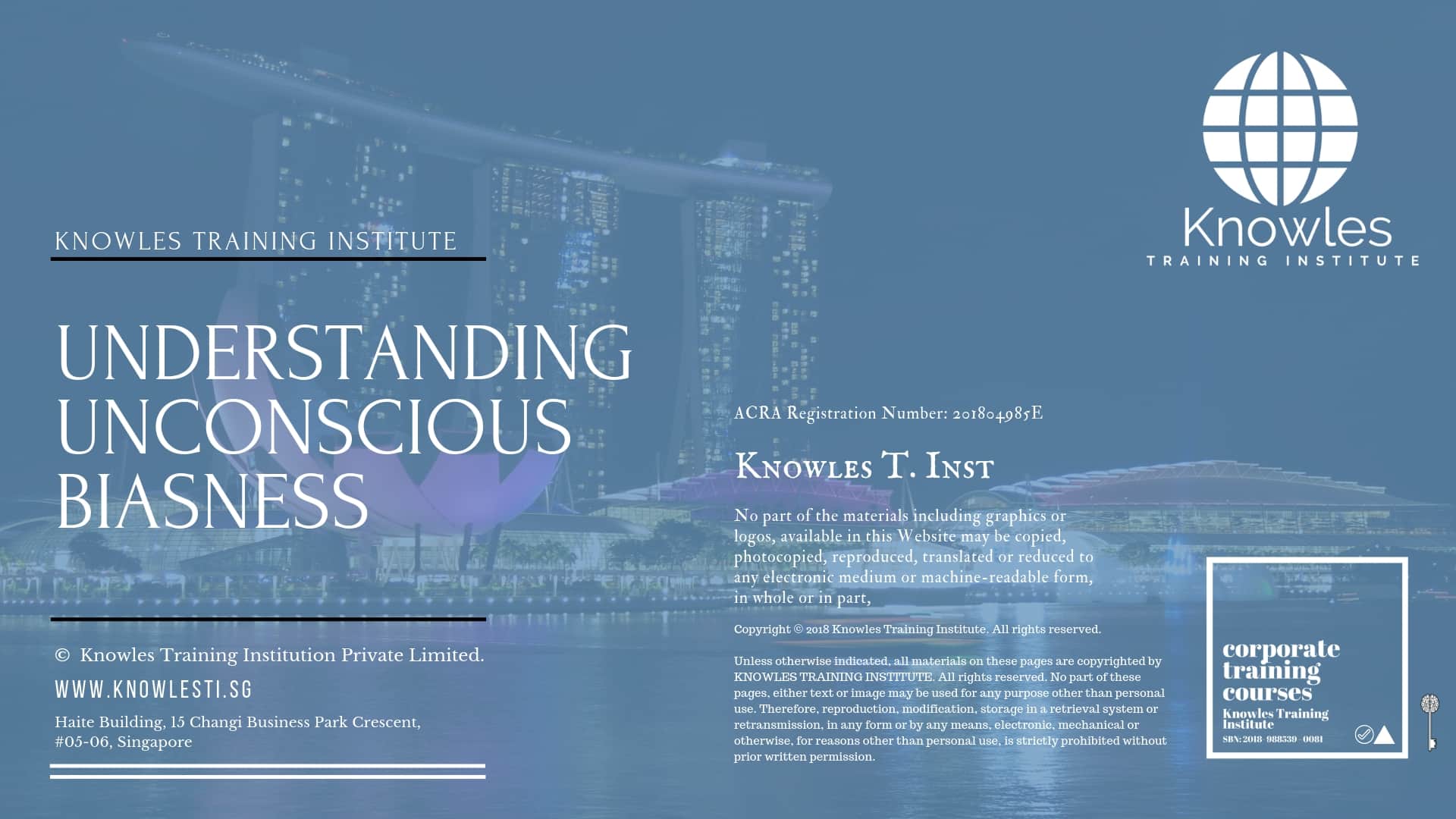
About This Understanding Unconscious Biasness Training Course in Pakistan
Understanding Unconscious Biasness Course in Pakistan
Unconscious bias, or implicit bias, is one of the most difficult types of bias to be avoided as it manifests unconsciously or involuntarily. It can be seen through prejudice against a certain person or group. Effectively understanding unconscious bias will also enable a person to detect any hidden unconscious bias in the workplace.
Who Should Attend This Understanding Unconscious Biasness Course in Pakistan Workshop
This Understanding Unconscious Biasness Course in Pakistan workshop is ideal for anyone who would like to gain a strong grasp and improve their Understanding Unconscious Biasness.
All Staff Within An Organisation
Managers
Team Leaders
Executives
Assistants
Officers
Secretaries
Group Size For This Understanding Unconscious Biasness Training Program in Pakistan
The ideal group size for this Understanding Unconscious Biasness course in Pakistan is:
Minimum: 5 Participants
Maximum: 15 Participants
Course Duration For This Understanding Unconscious Biasness Skills Course in Pakistan
The duration of this Understanding Unconscious Biasness Course in Pakistan workshop is 2 full days. Knowles Training Institute Pakistan will also be able to contextualised this workshop according to different durations; 3 full days, 1 day, half day, 90 minutes and 60 minutes.
2 Full Days
9 a.m to 5 p.m
Understanding Unconscious Biasness Course in Pakistan Benefits
Below is the list of course benefits of our Understanding Unconscious Biasness course in Pakistan
- Grasp the difference between Conscious and unconscious bias and the traits of each
- Learn how unconscious bias occurs and how it affects our choices
- Develop a plan how to not let peer pressure get in the decision making process
- Master the ways to avoid making a beauty bias in an everyday setting
- Create ways to prevent the application affinity bias in various selection activities
- Prevent the Halo effect is and how to have an objective view in things
- Achieve freedom from expecting bad things from others due to the Horn effect
- Gain understanding as to why people opt to listen the familiar and similar things
- Accomplish the ways to learn the contrast effect can alter the way a person views another
- Effectively use methods that don’t apply the Attribution bias and see everyone objectively
- Be flexible in the application of an objective take on things without seeking confirmation to those who will agree to us
- Be able to create means and methods to stop giving unconscious biases
Understanding Unconscious Biasness Course in Pakistan Objectives
Below is the list of course objectives of our Understanding Unconscious Biasness course in Pakistan
- Discuss the difference between conscious and unconscious biasness
- Explore how unconscious bias occurs and how it affects our choices
- Present the means in which conformity bias allows peer pressure to shape our choices
- Observe how people makes biases based on Beauty bias leads people to have preconceived ideas
- Analyze the ways selection activities is affected by the affinity biases
- Describe how the halo effect changes the view of a person in expecting the best
- Showcase the ways people expect bad things from others due to the Horn effect
- Dissect the ways a person gives a bias to those who are similar with their experience and states
- Inspect how the contrast effect can alter the way a person views another
- Examine the attribution bias and how it makes people believe that they are right
- Discuss the different methods in which we apply confirmation bias on ourselves or others
- Model the ways to overcome unconscious biases and what to remember
Course Content For This Understanding Unconscious Biasness Training Course in Pakistan
Below is the list of course content of our Understanding Unconscious Biasness training course in Pakistan
- Differentiating between Conscious and unconscious bias and the traits of each
- What is unconscious bias and how people have it when making a decision
- Understanding conformity bias and how peer pressure can mould decisions
- Learning how Beauty bias occurs and why the physical attributes of a person causes us to be biased
- How the affinity bias plays a large role in various selection activities
- Knowing what the Halo effect is and how it changes our view towards a person
- How a bad impression or trait can cloud our judgement and how to overcome the Horn Effect
- Why people often opt for similarity and how it can change decisions
- How the contrast effect happens during interviews and recruitments
- Describing the Attribution bias and why we think that we do good and others do bad
- Understanding the confirmation bias and how people tend to look for support from others
- How to overcome or avoid unconscious biases in work
Understanding Unconscious Biasness Course in Pakistan Value Added Materials
Each participant will receive the following materials for the Understanding Unconscious Biasness course in Pakistan
Understanding Unconscious Course in Pakistan Biasness Learner’s Guide
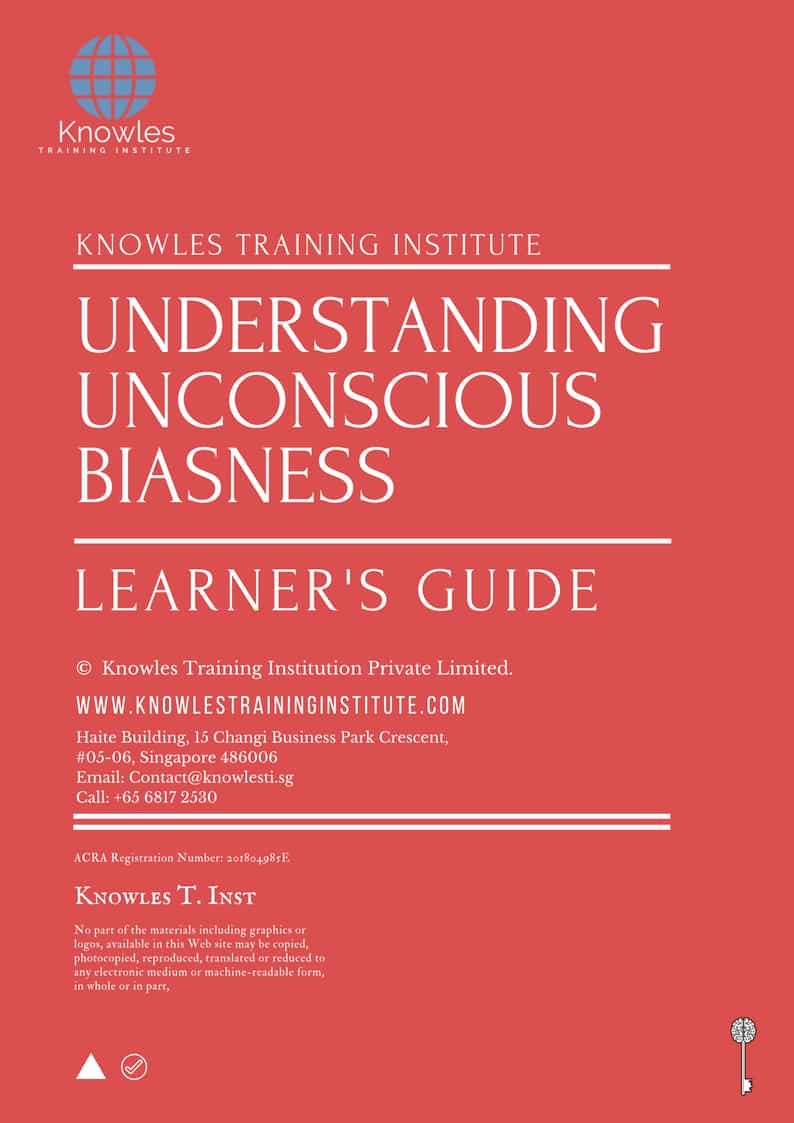
Understanding Unconscious Biasness Course in Pakistan Handouts
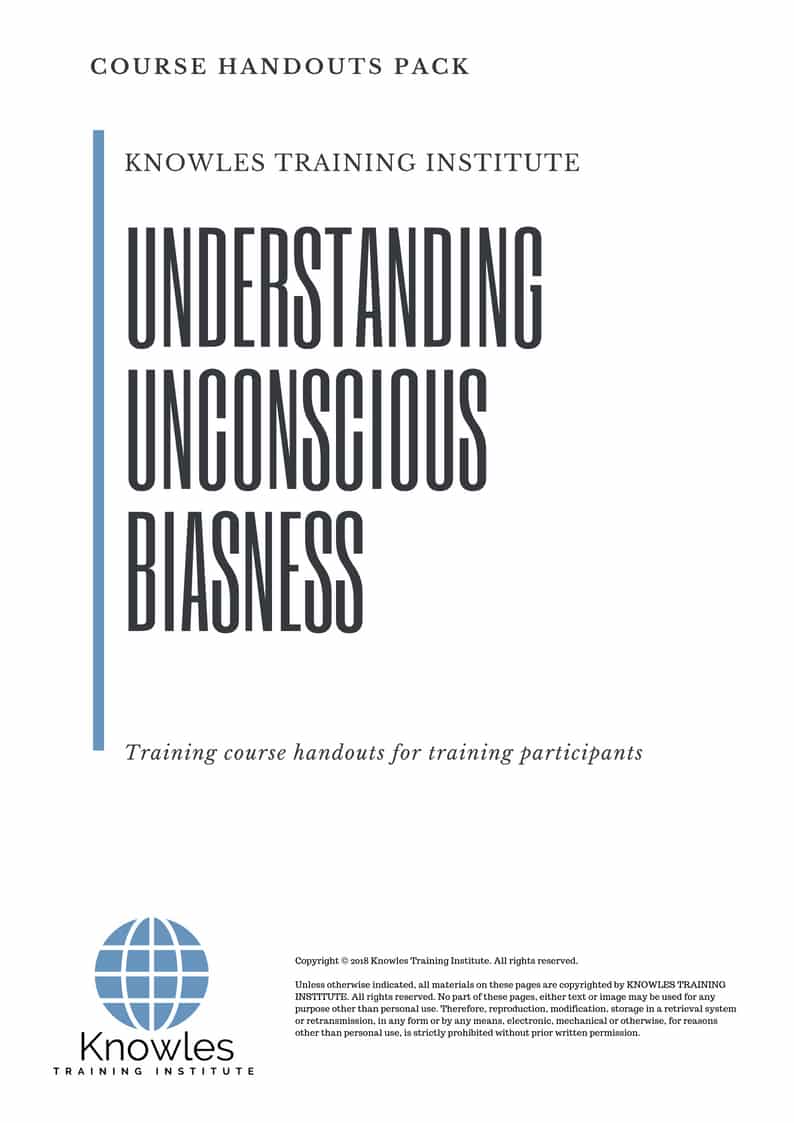
Understanding Unconscious Biasness Course in Pakistan PPT Slides Used During Course
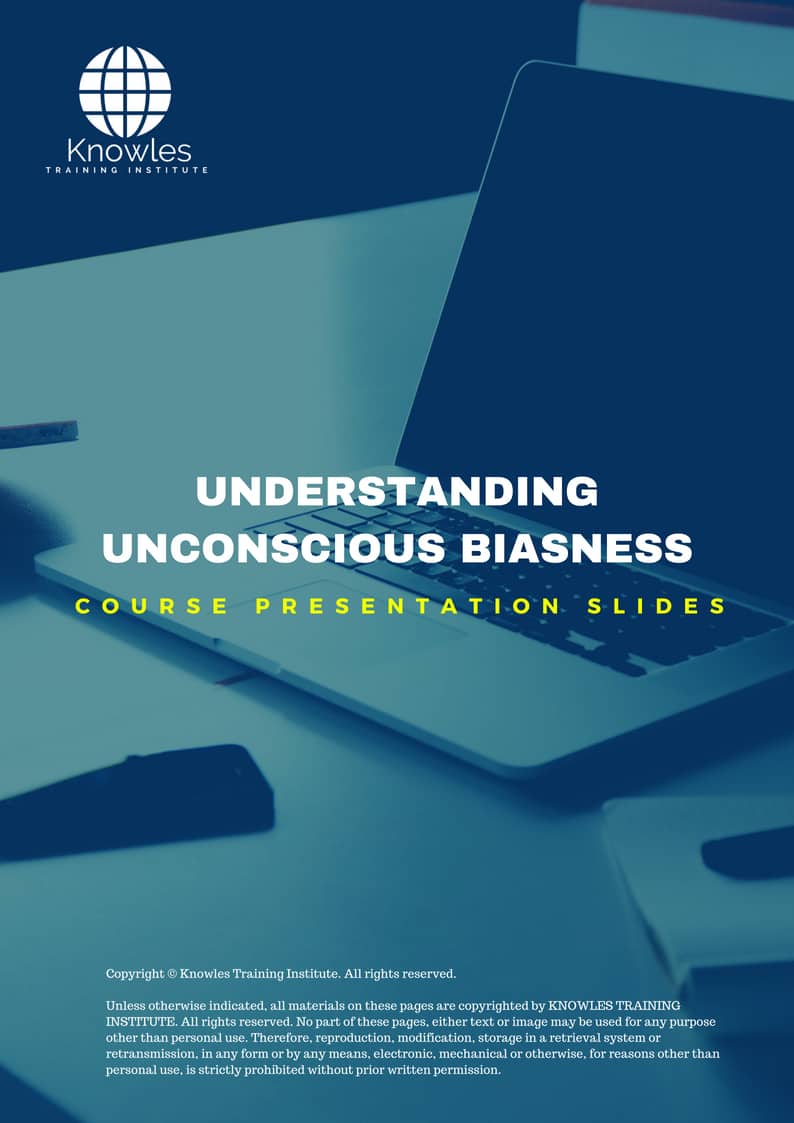
Understanding Unconscious Biasness Course in Pakistan Certification
Each course participant will receive a certification of training completion
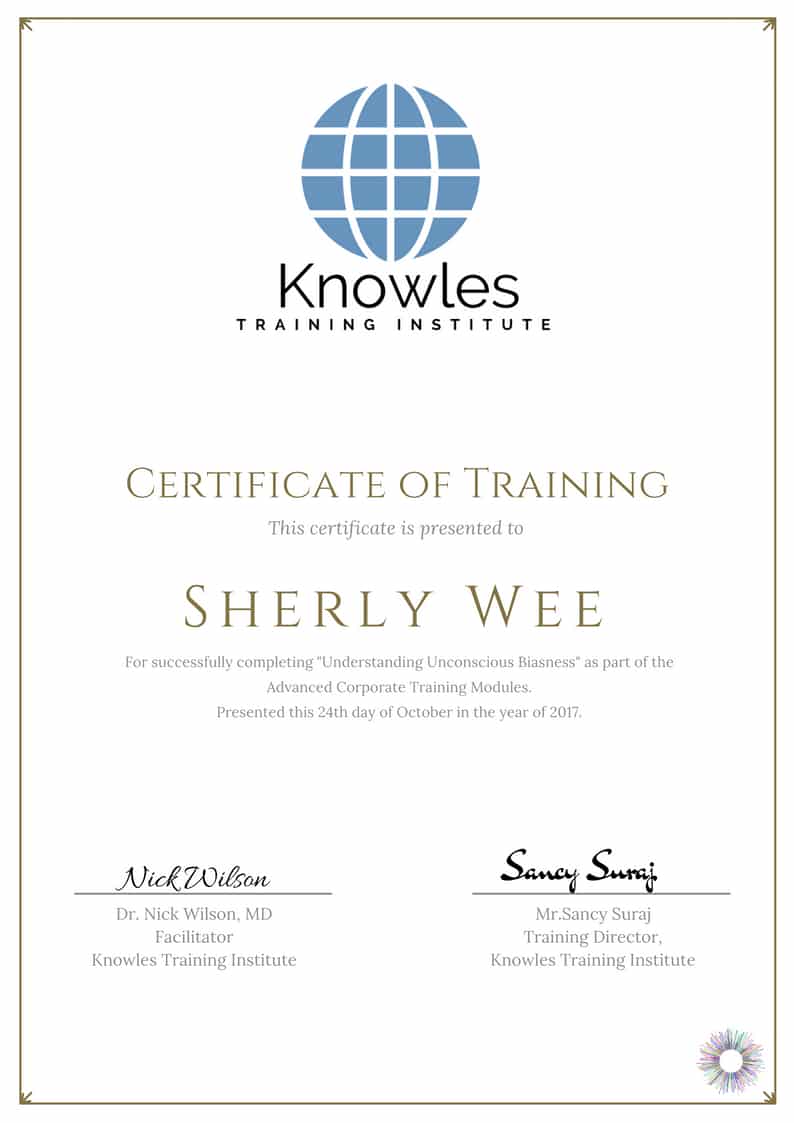
Course Fees For Understanding Unconscious Biasness Course in Pakistan
There are 4 pricing options available for this Understanding Unconscious Biasness training course in Pakistan. Course participants not in Pakistan may choose to sign up for our online Understanding Unconscious Biasness training course.
- USD 1,019.96 For a 60-minute Lunch Talk Session.
- USD 389.96 For a Half Day Course Per Participant.
- USD 629.96 For a 1 Day Course Per Participant.
- USD 854.96 For a 2 Day Course Per Participant.
Discounts available for more than 2 participants.
Course Discounts, Fundings & Subsidies
We have the following discounts, fundings & subsidies for this Understanding Unconscious Biasness training course in Pakistan

Upcoming Understanding Unconscious Biasness Training Course in Pakistan Schedule
Contact us for the latest Understanding Unconscious Biasness course in Pakistan schedules:
Email: contact@knowlesti.pk
Message:
Download Understanding Unconscious Biasness Course in Pakistan Brochure
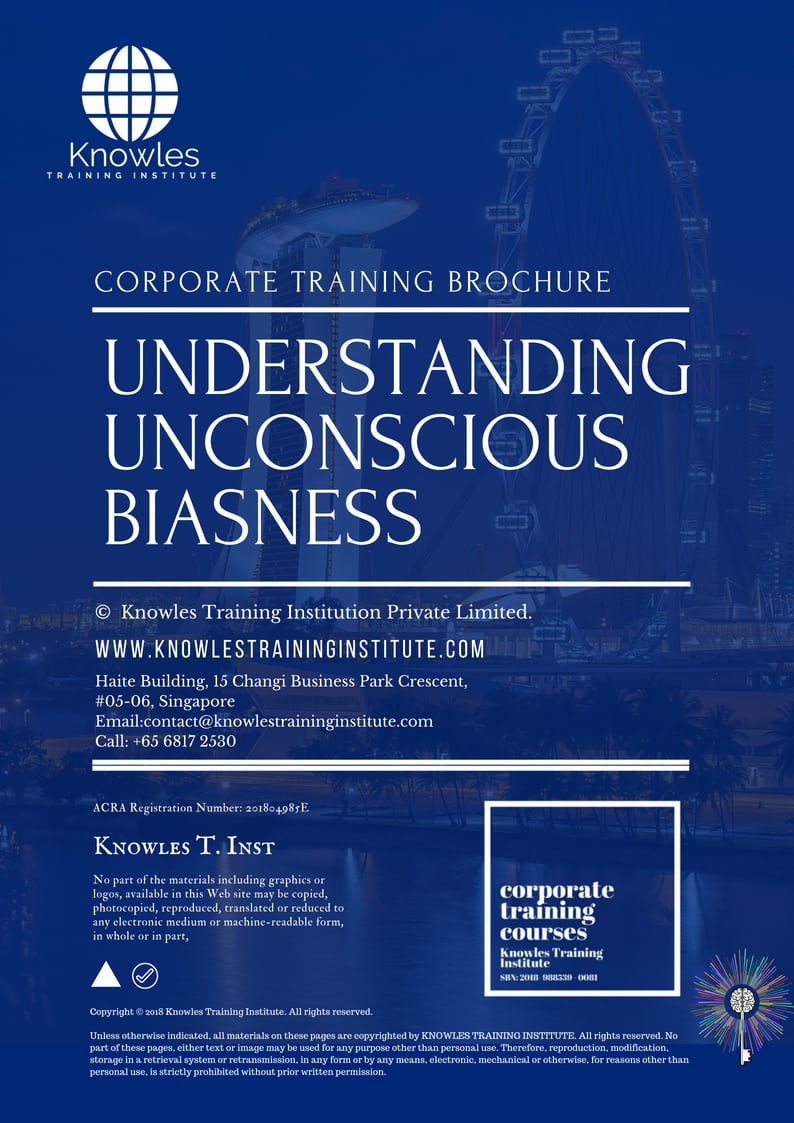
Request for this Understanding Unconscious Biasness course in Pakistan brochure. Fill up the short information below and we will send it to you right away!
Post Training Support: A vast majority of training does not have any effect beyond 120 days. To work, training has to have a strong pre- and post-training component. Post-training reinforcement helps individuals to recall the understanding and ask questions.
Blended Learning: Learning does not occur in the classroom. Virtually everybody prefers distinct ways of learning. Successful learning should have a multi-channel, multi-modal strategy.
- We Understand The Industry: We’ve got a profound comprehension of the business, business design, challenges, strategy and the that our participants are in and have designed the courseware to cater to their professional needs.
- Course Content: Knowles Training Institute’s material is relevant, of high quality and provide specific learning results. Participants will leave the training course feeling as they have gained a strong understanding and will also be in a position to execute what they have learned sensibly.
Course Development — The workshop modules follow a systematic and logical arrangement. This structure helps to ensure that the course material allows the facilitators to deliver the course in a logical arrangement. Consider the subjects as building bricks into learning, our facilitators slowly build towards a comprehensive picture of this entire topic.
